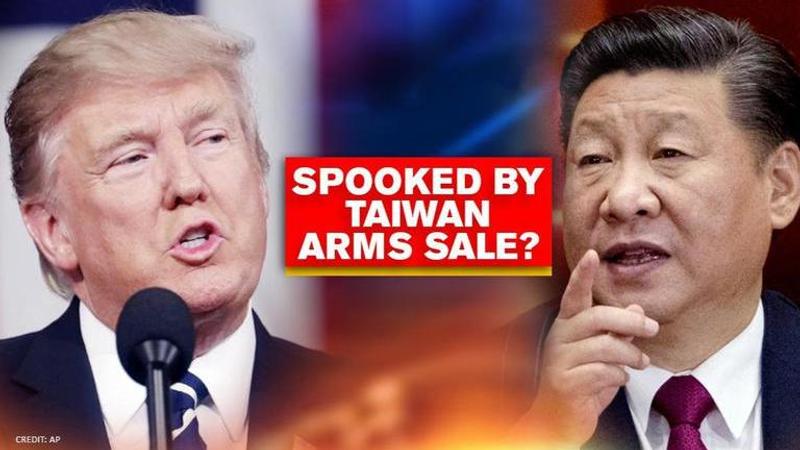Published 14:09 IST, July 11th 2020
Spooked Chinese mouthpiece claims upper hand after US approves arms supply to Taiwan
Taiwan has been a longterm enemy of China, trying to retain its autonomy against Chinese expansionist aggression as China claims Taiwan as its own territory.

In a seemingly preemptive attempt to counter the Chinese aggression over the neighbouring nations, the US State Department has approved the recertification of Taiwan’s Patriot Advanced Capability-3 (PAC-3) air defence missiles for an estimated cost of USD 620 million.
The recertification package the US is offering Taiwan includes replacing PAC-3 components that are near expiration, testing and repairing the capability and spare parts for ground support equipment, and other logistics support, US media Defense News reported on Friday.
According to the reports, the PAC-3 air defence missiles are an important weapon in Taiwan's high-altitude defence systems, which are deployed in Taiwan's major cities and surround Taiwan's important military facilities. The PAC-3 is the most advanced model, with a maximum interception range of 70 kilometres, and maximum interception altitude of over 24 kilometres. The search range of its radar is 100 kilometres and can track 100 targets at the same time.
Chinese aggression against Taiwan
Taiwan has been a longterm enemy of China, trying to retain its autonomy against the Chinese expansionist aggression as the Communist regime of China claims Taiwan to be a part of its mainland and also raising tensions in Taiwan straight and the South China sea. The US has been a defence partner of Taiwan, supplying arms to the country to defend against Chinese aggression. The US had earlier approved the sale of 18 MK-48 Mod 6 advanced technology heavyweight torpedoes to Taiwan on May 20.
Reacting to the arms sale by the US to Taiwan, spooked Chinese mouthpiece Global Times quoting its own experts [yet another mouthpiece of Chinese Communist Party] has claimed that the US has done the deal with Taiwan with the "evil intentions" of creating more trouble to contain China and use Taiwan military as a shield to block PLA missiles for US fleets besides earning more business for US arms industry.
Psychological warfare of China
However, China, known for its psychological warfare is good at creating a psychological fear among its opponents by boasting about its military capabilities. As always, the Chinese experts maintained that the arms sale will not change the power balance across the Taiwan Straits, proclaiming that the Chinese PLA has upper hand owing to its superior military. The same was said by the mouthpiece during the Indo-China border violent standoff in the Galwan valley, however, what's known to the world is that over 40 Chinese casualties were inflicted to the PLA during the Galwan standoff with the Chinese government even refusing to acknowledge its martyrs and not disclosing its casualty numbers while India gave a guard of honour and salute to the 20 brave Indian martyrs in the standoff. After the standoff, witnessing India's capability to defend its territories militarily and the Indian government's will to counter Chinese aggression, the Chinese rhetoric has toned down with lesser aggression as days pass by.
On July 6, the Chinese Army removed tents from Patrol point 14, -- the place where the Galwan Valley faceoff took place and moved back by 1 km. Moreover, sources said that the rearward movement of vehicles of Chinese troops was seen in the general area of Galwan and Gogra Hot Springs. Chinese Foreign Ministry Spokesperson Lijian Zhao confirmed that both countries have progressed in disengaging and de-escalating the border situation in the June 30 Military commander-level talks.
Besides, the Quad alliance of the US, Australia, India and Japan, for cooperation in the areas of defence and security amid rising threat from China, is also working for a free and open Indo-Pacific region, against the expansionist policy of China.
Updated 14:09 IST, July 11th 2020




